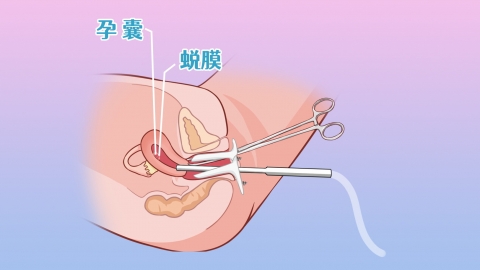Why does the stomach hurt in waves after an abortion?
Abortion refers to induced abortion, and abdominal pain refers to belly pain. Generally, intermittent cramping abdominal pain after induced abortion may be caused by uterine contractions, medication effects, pelvic inflammatory disease, hematometra, or retained tissue in the uterine cavity. Symptomatic management may include general treatment, medication, or surgical treatment. If symptoms are severe, timely medical consultation and examination are recommended for targeted treatment. Detailed analysis is as follows:

1. Uterine Contractions
After an induced abortion, the uterus gradually returns to its pre-pregnancy size, a process that relies on uterine contractions. Some patients are more sensitive to pain and may experience intermittent cramping pain in the abdomen. This is a normal physiological phenomenon during the recovery of the uterus and generally requires no special treatment; the pain will gradually subside.
2. Medication Effects
Following an induced abortion, doctors may prescribe medications to promote uterine contractions, such as oxytocin. These medications enhance uterine contractions, which may intensify pain symptoms but also aid in the recovery of the uterus. It is recommended to rest in bed and avoid strenuous physical activity to help alleviate discomfort.
3. Pelvic Inflammatory Disease
After an induced abortion, bacteria may ascend and infect pelvic organs, causing pelvic inflammatory disease. Inflammatory stimulation may lead to paroxysmal cramping pain, which may be accompanied by symptoms such as fever, pain during sexual intercourse, frequent or urgent urination. It is recommended to follow medical advice and use medications such as levofloxacin tablets, metronidazole tablets, or Fuyankang capsules to alleviate symptoms.
4. Hematometra
The occurrence of hematometra is relatively rare and may be associated with excessive uterine retroflexion or a tightly closed cervix. Typically, knife-like pain occurs several hours after the abortion, accompanied by slight vaginal bleeding, uterine enlargement, and tenderness. It is recommended to take medications such as motherwort granules, Wu Jia Sheng Hua capsules, or misoprostol tablets under the guidance of a doctor.
5. Retained Tissue in the Uterine Cavity
If the pregnancy tissue in the uterine cavity is not completely removed during the abortion, residual tissue may stimulate uterine contractions, leading to intermittent cramping pain in the abdomen and increased vaginal bleeding. In such cases, immediate medical attention is required for procedures such as dilation and curettage (D&C) or hysteroscopic removal of the residual tissue to thoroughly eliminate the remnants and prevent complications.
After an induced abortion, women are advised to maintain healthy lifestyle habits, ensure adequate rest, and eat a balanced diet to promote physical recovery.
References
[1] Xu Hui, Zheng Jianjun, Du Xiujuan, et al. Effect of hysteroscopic cold knife system in treating patients with retained tissue in the uterine cavity after abortion [J]. Clinical Medicine Research and Practice, 2024, 9(36):90-93.
[2] Zhang Hailin. Effect of misoprostol in preventing hematometra after induced abortion and its impact on curettage rates [J]. The Journal of Physicians, 2017, 2(Z2):202-203. DOI:10.19604/j.cnki.dys.2017.z2.119.




